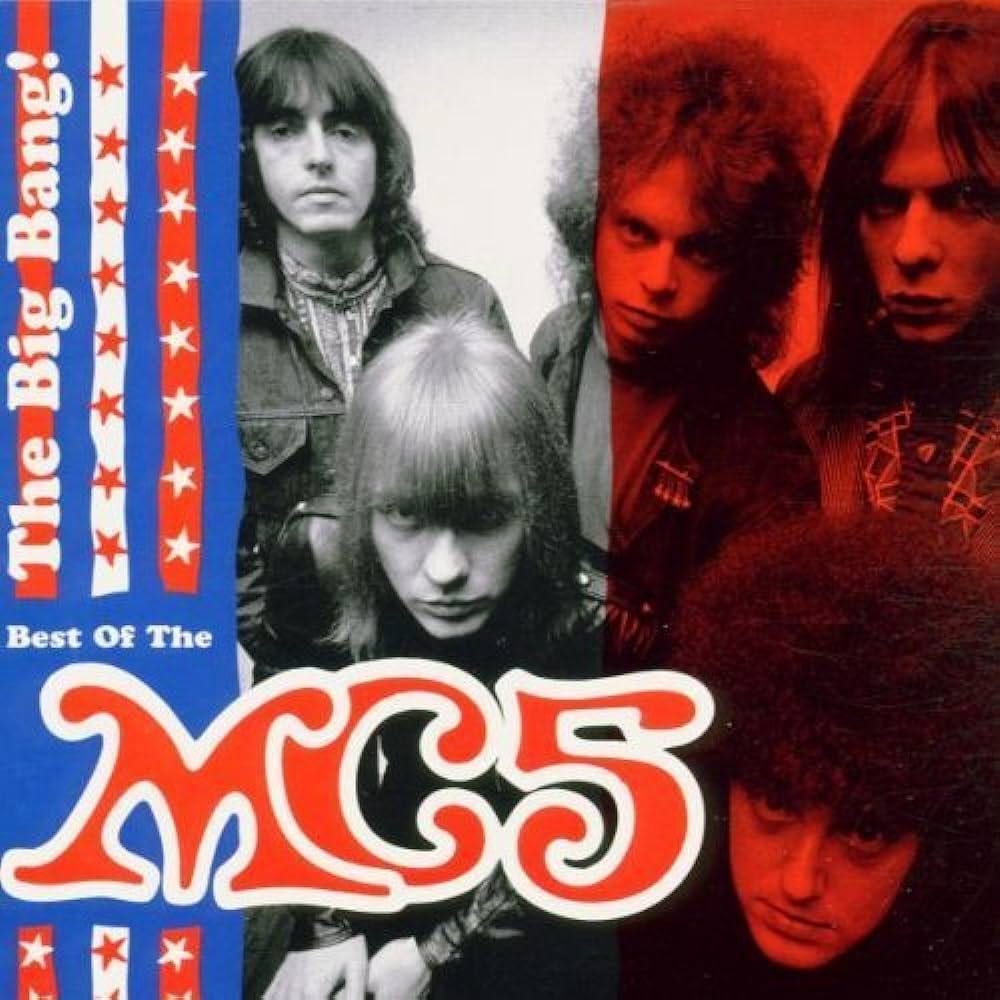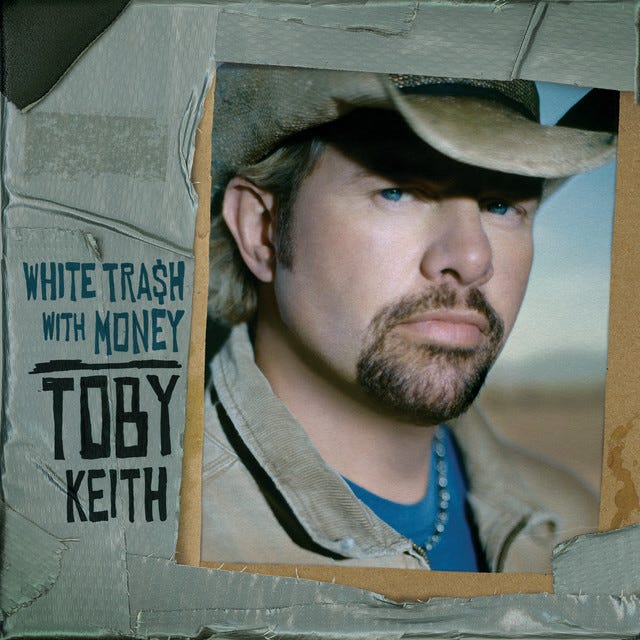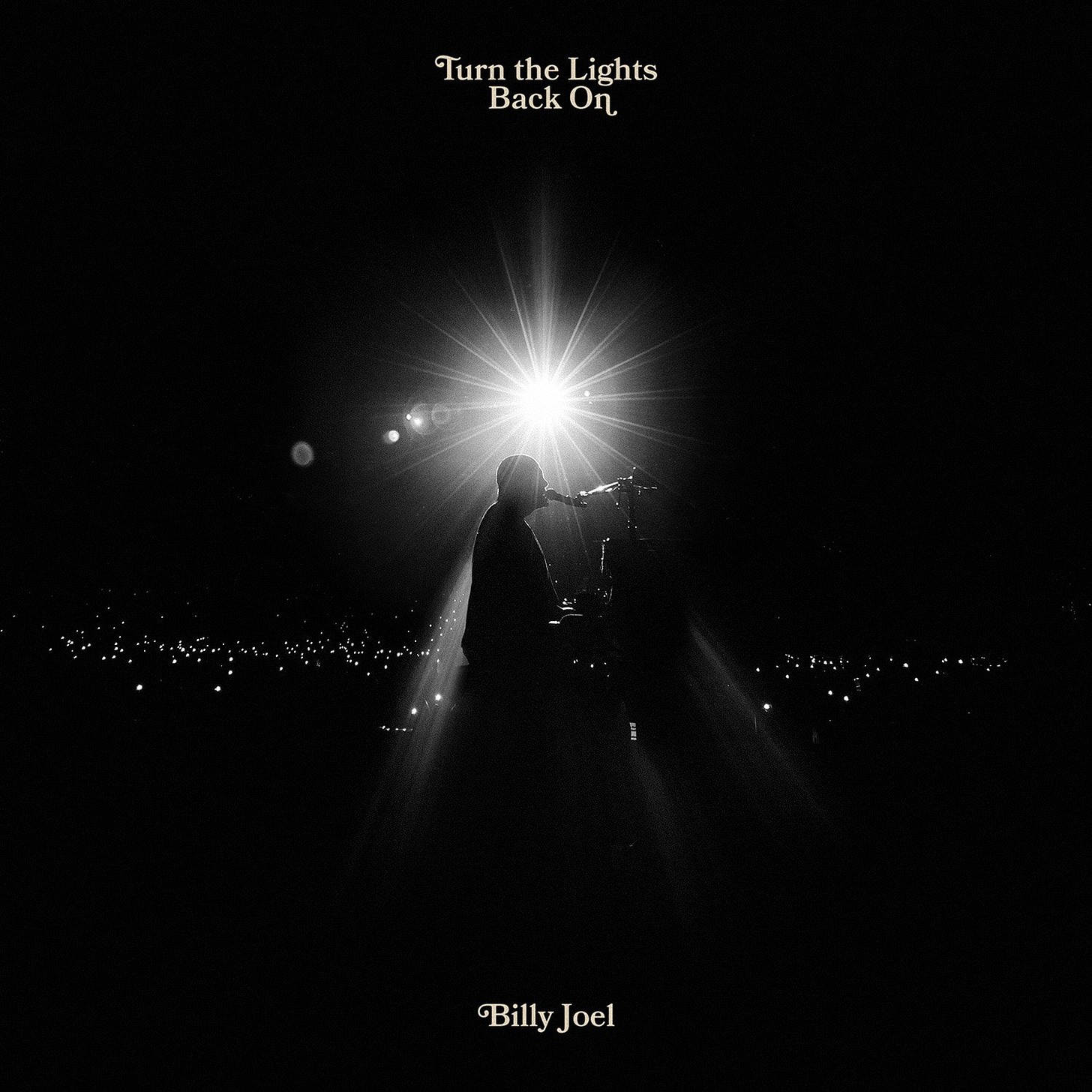Pumping on Your Stereo, 2-9-24
Saluting Wayne Kramer with the MC5's Big Bang, taking stock of Gruff Rhys' magnificent sadness, J. Mascis and TORRES, plus Toby Keith RIP, singles by Billy Joel and Crowded House.
MC5—The Big Bang! Best of the MC5 (2000; 1967-1971)
The MC5 careened from one extreme to another, tearing through a rock & roll oldie before collapsing in atonal cacophony. That volatility carried over to their discography, where each of their three albums for Elektra felt radically different even though they're recognizably the work of the same band. Oddly, this makes for an excellent compilation, possibly because The Big Bang! Best of the MC5—released by Rhino in 2000, available on streaming services now—adds the group's early singles, records that still crackle with wild electricity: "I Can Only Give You Everything" and the original A-Square version of "Looking at You" seem untamed, almost unhinged in how the guitars of Wayne Kramer and Fred "Sonic" Smith slash and growl. The live testifying of Kick Out of the Jams seemed even wilder, leaving the revolutionary bubblegum of Back in the U.S.A. as the clear connective thread to their first 45s. Hearing this narrative—culminating in the muscular High Time, where the group undoes their own streamlining (witness how "Sister Anne" concludes with a woozy horn line straight from a New Orleans funeral)—condensed into a compilation is not only entertaining, it's instructive: it captures their fire and range better than any single LP. When news broke of Wayne Kramer's death last Friday, it was the first thing I played and the record that I kept spinning throughout the subsequent weekend.
Gruff Rhys—Sadness Sets Me Free (2024)
It's easy to ignore the transcendence in the second part of the title of Sadness Sets Me Free, the eighth solo album from former Super Furry Animal Gruff Rhys, in favor of its opening word: "Sadness" is the kind of word that sets a particular tone. Surely, there are melancholy undercurrents flowing throughout Sadness Sets Me Free yet the album never feels mournful. The trick is that Rhys composes at a small scale then arranges majestically. Focusing on interior journeys instead of such as 2019's Seeking New Gods, Rhys writes forlorn, gently psychedelic melodies provide a bittersweet pulse while the sumptuous strings and orchestrations offer a reassuring release.
J Mascis—What Do We Do Now (2024)
J Mascis solo ventures offer quiet counterpoints to the roar of Dinosaur Jr. and What Do We Do Now is now exception. Acoustics abound on What Do We Do Now yet this isn't ruminative folk-rock, it's fireside pop: warmth emanates from the melodies and the performances alike. Much of this derives from Mascis himself—he's a full band, playing bass and drums as well as guitars—but Ken Mairui adds momentum and color with his keyboard, while Matthew "Doc" Dunn's pedal steel gives texture and dimension. Lacking volume but not tempo, What Do You We Do Now feels lively, at least within the context of the extended Mascis universe, yet its true appeal is that it feels comfortable without being complacent.
TORRES—What an enormous room (2024)
Torres swung for the fences with Thirstier, ratcheting up amplifiers and painting her melodies in broad strokes. Those gestures aren't forgotten on What an enormous room; they're absorbed. Applying those sharpened skills precisely in a hushed, atmospheric setting, What an enormous room hovers somewhere between comfort and contemplation: it's an interior journey but not an alienating one. Trading on some of the artier affectations of her earlier records, Torres nevertheless trades obfuscation for forthright emotions: the textures linger as long as the melodies, which twist, sigh and settle into a lovely shimmer.
Toby Keith—White Trash With Money (2006)
Toby Keith—The Bus Songs (2017)
Between 2005 and 2011, Toby Keith belonged among the artists I listened to the most—which would've shocked the STE of 2002, who couldn't abide by either of his big Desert Storm hits. "I Love This Bar" nudged the door open for me, Honkytonk University converted me completely, White Trash With Money made me a lifelong fan. Anybody arriving at Keith in the 2000s couldn't avoid the political stance he took in the George W years but unlike Hank Jr a sense of malevolence never creeped into his music. Sure, he could be a boor but he also was an uncommonly nuanced balladeer and could deliver a joke so easily, the songs never seemed like novelties. I can't disagree with David Cantwell that there's a straight line from Keith's behavior in the early 2000s to Jason Aldean's noxious "Try That in a Small Town" but where Aldean is an odious mewling cipher, Keith was a genuine artist: both his good and bad work could pack a wallop. Listening to "Beer for My Horses" again this week, I can't deny it works as music—something that can't be said for "Try That in a Small Town"— but its lynching fantasies remain repellent. His great music, however, still sounds tremendous. The loose and bluesy White Trash With Money remains my favorite but as I wrote my appreciation for the Washington Post, I found myself returning to the easy-rolling tunes collected on The Bus Songs, where the light touch is as appealing as the crowd-pleasing punchlines.
My Toby Keith appreciation but also check out these article by Brad Shoup, Alfred Soto, Nadine Smith, Chuck Eddy’s essay the Village Voice in 2008..and, of course, the aforementioned piece David Cantwell (subscribe to No Fences Review, the Substack he runs with Charles Hughes):
Billy Joel—Turn the Lights Back On (2024)
I'm deeply skeptical of the party line that Billy Joel added a light polish to a song primarily written by Freddy Wexler, a songwriter/producer with a track record featuring Ariana Grande, Selena Gomez, Kanye West, Jonas Brothers, and Demi Lovato, and two other collaborators. Perhaps it's true and Wexler's desire to be "a little vague with every detail of the writing process" is out of respect, not a smokescreen for an insecure singer/songwriter to remerge with new material for the first time in either 17 or 31 years, depending if a pair of 2007 tunes count ("All My Life," a Sinatra-esque celebration of new love, gets some notices; the topical "Christmas in Fallujah" does not, maybe because it was handed over to Cass Dillon). With its images of romantic revival, "Turn the Lights Back On" certainly feels like the work of an older artist and its moody, not mournful, cadences do recall prime mid-70s Joel. No matter who did the bulk of the work, Wexler deserves credit for not only coaxing Joel back to action but making sure "Turn the Lights Back On" belongs in a lineage that includes "Summer, Highland Falls" and "Vienna," not "River of Dreams."
Crowded House—Oh Hi (2024)
The first single in two years is so light it almost drifts away, which doesn't mean it lacks a melody to tether it to the ground: there's a hook that will lap away on the subconscious after two spins. Rather, the arrangement and execution is sweet and easy, almost too much so for a lead single yet "Oh Hi" functions like an amuse bouche: it whets the appetite for further courses.
Paul McCartney & Wings—Band on the Run (50th Anniversary Edition)
Initially skeptical of the "Underdubbed" mix due to my lingering distaste for Let It Be Naked, this 50th Anniversary Edition of Band on the Run won me over because of its focus on how Wings interact as a band. My review for Pitchfork:
The Paranoid Style—The Interrogator
Elizabeth Nelson is as sharp a songwriter as she is a critic—and, better still, those two skills come to head on The Interrogator, the sharp new LP from her band The Paranoid Style. My review for Pitchfork
Chatham County Line—Hiyo
An expert progressive bluegrass band teams with a producer best-known as a movie music supervisor, winding up with an evocatively atmospheric album. My review for Pitchfork.







